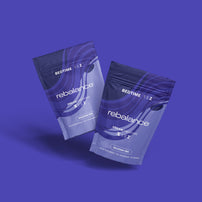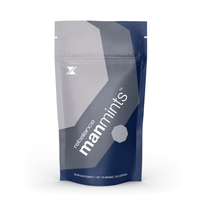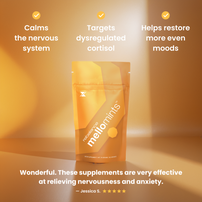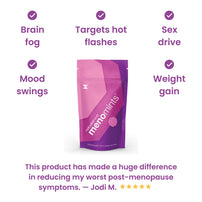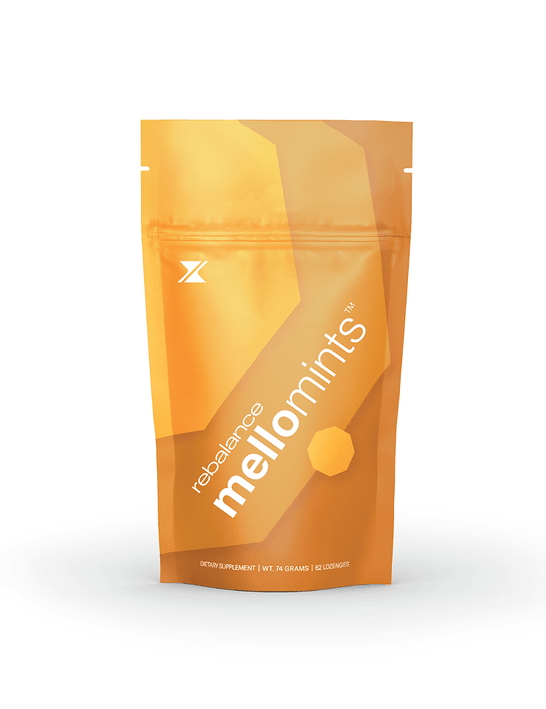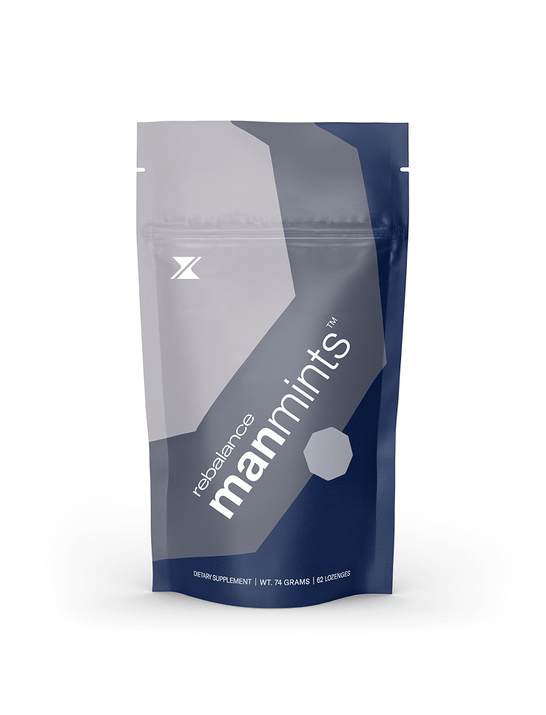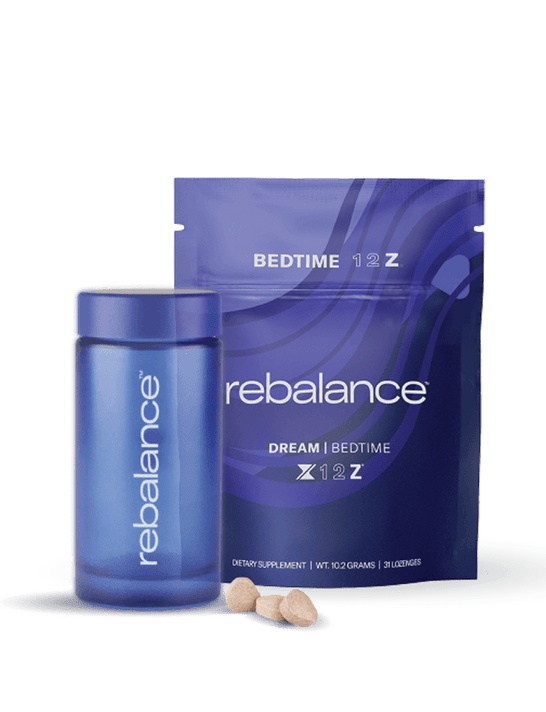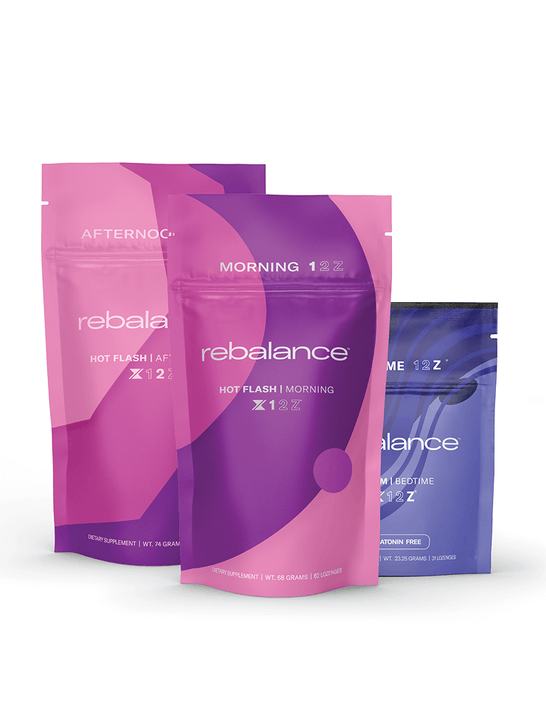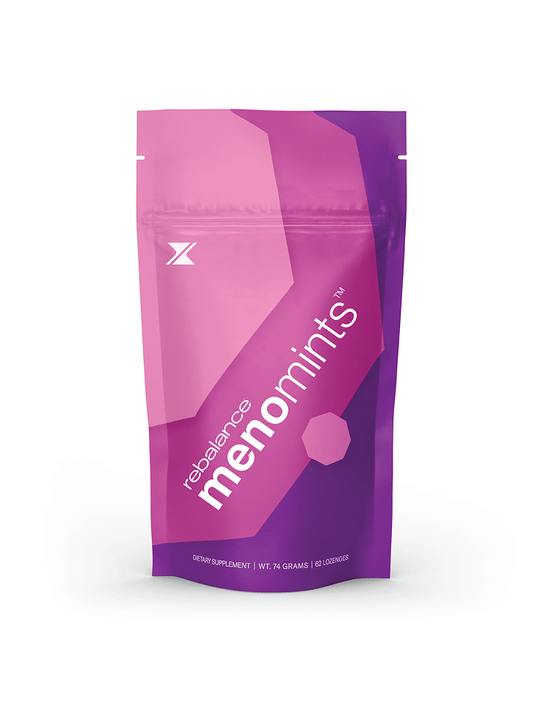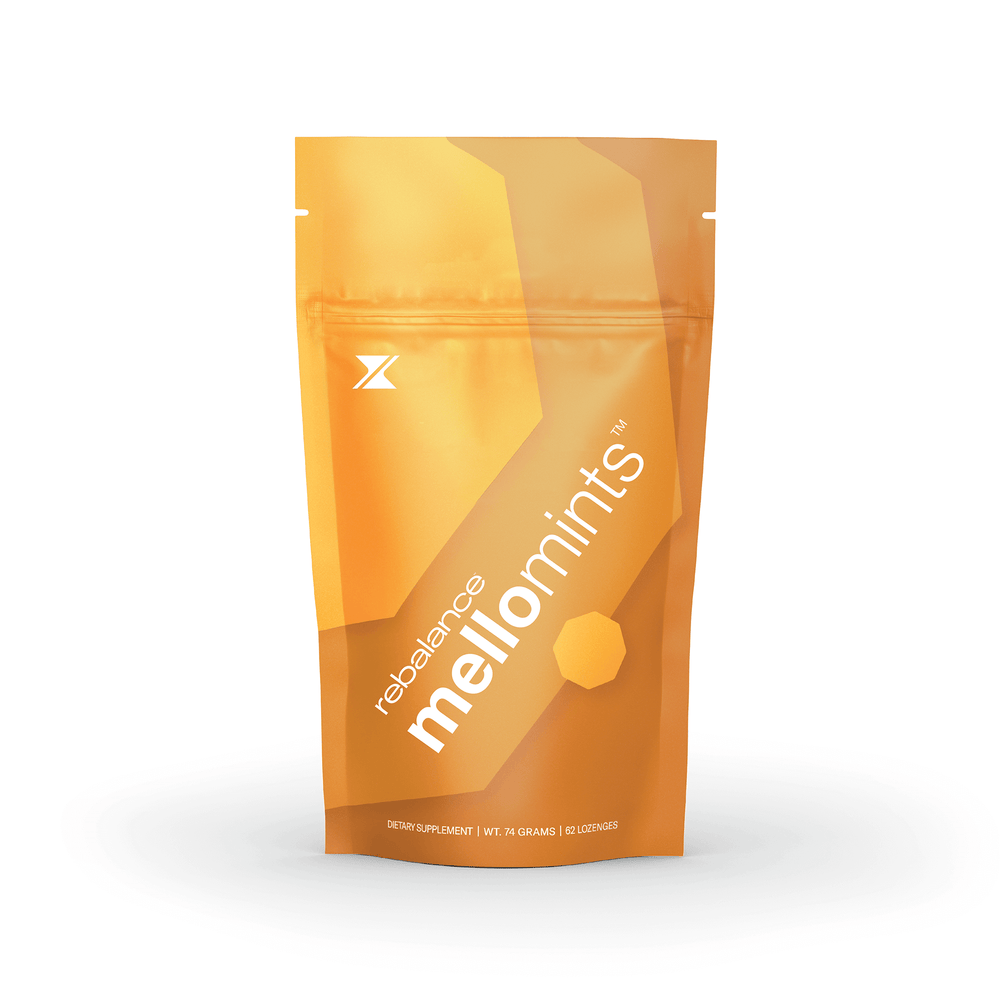Can Testosterone Help You Lose Weight in Menopause?
11/19/2024 by Rebalance Health

What the hormone can and can’t do for your weight.
Nov. 14, 2024 /HONE/
Menopause is one of life’s biggest transitions. While some good comes out of it (like saying goodbye to periods), menopause can bring a myriad of symptoms, including hot flashes, irritability, and unwanted weight gain that you just can’t seem to shake.
Lots of factors can contribute to this weight gain—often charmingly referred to as a “menopause belly“—but out-of-whack hormones play a role. The finger is often pointed solely at estrogen, but drops in testosterone are partly to blame. The theory? Less testosterone might mean less muscle mass, which can lead to slower metabolism and more fat accumulation.
It would seem like there’s a simple solution: Just take testosterone. But unfortunately, it’s not that straightforward. While there are some benefits of low-dose testosterone replacement therapy (TRT) for women, the jury is still out on whether or not weight loss is one of them.
So far, research doesn’t fully support the notion that testosterone can help women lose weight directly. But it may indirectly lead to weight loss.
About the Experts
Jolene Brighten, N.M.D., F.A.B.N.E., is a board-certified naturopathic endocrinologist and clinical sexologist who specializes in hormone imbalances. She’s the author of Is This Normal? And Beyond the Pill.
Todd Dorfman, M.D., is a board-certified emergency physician and hormone management specialist. He’s the Chief Medical Officer at Rebalance Health.
Kim Shapira, M.S., R.D. is a registered dietitian specializing in menopause and weight gain and loss.
Menopause and Weight Gain
There are two major players involved in menopausal weight gain: estrogen and testosterone.
During menopause and in the years leading up to it, estrogen levels drop, which can prompt overeating and lead to weight gain (1). “Our hunger cues get disrupted when estrogen decreases, causing an increase in the hunger hormone ghrelin,” explains registered dietitian Kim Shapira, M.S., R.D. This hormonal flip-flop can trigger intense hunger, which leads to overeating and, ultimately, weight gain (2).
Decreasing estrogen levels can also change gut health, making the gut lining more permeable and reducing microbiome diversity—both of which are linked to increased visceral (belly) fat (3 4). Drops in estrogen can also negatively affect sleep, which is also linked to—you guessed it—weight gain (5, 6).
But where does testosterone come in? It’s a little more complicated. Testosterone levels also drop during menopause (7). Testosterone doesn’t directly regulate weight, but it does play a role in maintaining muscle. Theoretically, when it drops, you can lose muscle, especially if you’re not strength training. “Less muscle means a slower metabolism, which can contribute to weight gain,” explains Todd Dorfman, M.D., a hormone management specialist.
Although total testosterone levels decrease with age, a dip in sex hormone-binding globulin (SHBG)—a protein that regulates sex hormones including testosterone—may slightly boost the amount of free testosterone in your system during menopause (8). Elevated free testosterone is associated with belly fat in women at various stages of the menopause transition (8).
Visceral fat isn’t just a cosmetic issue—it’s been linked to metabolic syndrome, heart disease, and some cancers (9).
Can Testosterone Help Women Lose Weight in Midlife?
Since menopausal weight gain is partly connected to drops in testosterone, can TRT help you lose weight? Maybe.
Testosterone isn’t a magic bullet for weight loss. A few rounds of testosterone via injection or cream isn’t going to translate to rapid, sustained weight loss. However, it can help women build muscle mass, and when coupled with the right nutrition and lifestyle, this may help you reach your weight loss goals faster, according to Jolene Brighten, N.M.D., a board-certified naturopathic endocrinologist.
TRT can also help improve other menopause symptoms, like lower libido, mood swings, low energy, and inflammation—issues that can make it tough to stay motivated and consistent with your diet and exercise routine. (10, 11). “[Testosterone can give] women a fuller, more robust outlook and energy in their day-to-day life. When we are inflamed, we are less motivated. But when we are sleeping well and waking up rested, we are more likely to be motivated to make choices that help us stay aligned with the way we want to feel,” says Shapira.
However, in women, too much testosterone can potentially worsen insulin resistance and contribute to weight gain, especially in the midsection, warns Brighten. It can also cause other side effects, like hair loss, oily skin or acne, and irritability. “This is why using the lowest effective dose and being monitored by your healthcare provider are important with this therapy,” she says.
It’s also important to make sure estrogen levels are balanced before adding testosterone to hormone therapy (HT). If estrogen levels are low, TRT is more likely to contribute to weight gain, especially around the midsection (1).
Other Ways to Lose Weight in Menopause
TRT isn’t the sole answer to menopausal weight loss, but there are plenty of tried-and-true strategies that can be more effective and sustainable.
In fact, most of the best ways to lose weight in menopause are fairly straightforward diet and lifestyle changes. The key is consistency (cliche, but true), along with making a few tweaks to support your body at your current age.
Exercise
Perhaps unsurprisingly, exercise tops the list as a cornerstone of weight loss. Many women go hard on cardio in an effort to burn as many calories as possible, but excessive cardio combined with calorie restriction can decrease muscle mass, making weight loss harder (12).
The winning combo? High-intensity cardio to reduce visceral fat (13), plus strength training to build and maintain muscle. Strength training can also help naturally balance hormones and increase bone mineral density and metabolism (14).
Focus on short, high-intensity cardio workouts. Aim for 30- to 45-second intervals of max effort with two to three minutes of recovery for 20 to 30 minutes a few times a week. And hit the weight room at least twice a week. Studies show menopausal women see the most significant body composition changes when they strength train consistently (15).
Prioritize nutrient-dense foods
What you eat has a major impact on your hormones, your ability to build and maintain lean muscle mass, and whether you lose or gain weight.
Dorfman recommends focusing on a diet rich in fruits, vegetables, whole grains, lean protein, and healthy fats. Aim to reduce sugar and refined carbohydrates which can increase blood sugar levels and fat storage.
Protein is key for building and maintaining muscle mass. Brighten recommends at least 1.1 grams of protein per kilogram (or 2.2 pounds) of body weight, though many women require more.
Fiber is another key player, as it helps keep you full and supports healthy digestion. Aim for at least 25 grams of fiber daily.
Watch portion sizes
With hormone fluctuations in full swing during menopause, hunger cues can become unreliable. If counting calories feels tedious, try portion control instead. “When you’re hungry, take your normal portion, cut it in half, wait 15 minutes, and see if you need more food,” advises Shapira.
Manage stress
Stress management is huge for your mental health, but it’s also vital for weight loss. In menopause, declining estrogen can cause cortisol (the body’s primary stress hormone) to spike (16). Chronically elevated cortisol levels can boost visceral fat storage, so you’ll want to keep stress under control (17). Yoga, meditation, and deep breathing can help reduce cortisol, says Dorfman (18).
Prioritize sleep
Getting better sleep is easier said than done, especially if night sweats and insomnia are keeping you up at night. But since poor sleep is associated with weight gain, getting seven to nine hours per night should be a priority.
Use blackout curtains, white noise machines, and/or earplugs to keep your room dark and quiet. Keep electronics out of the room. And get on a regular sleep schedule, i.e. going to bed at the same time and waking up at the same time every day (even on the weekends).
The Bottom Line
Testosterone isn’t the only answer to weight loss during menopause, but it can give you more energy to make healthy choices and help you build lean muscle, which helps with weight management by contributing to calorie burn and a healthy metabolism. Whether or not you take testosterone, making lifestyle changes like exercising, eating nutrient-dense, portion-controlled foods, and managing stress are the best ways to see improvements in your body composition.
About the author
Lindsay Boyers is a functional nutritionist and writer who specializes in evidence-based health and wellness writing. Her bylines appear on Healthline, Verywell Health, mindbodygreen, and Livestrong, among others.
Overview

Stay Calm. Sleep Deep. Wake Clear.
A lozenge that supports deep sleep, better REM, and calmer nights. Without melatonin — unless you want it.

